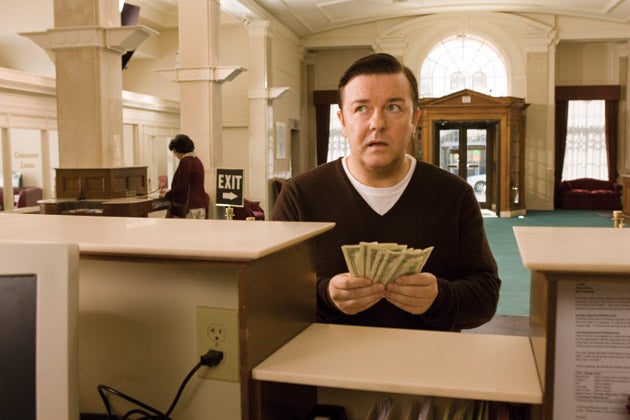Rhiannon Harries: Brutal reality gives the lie to the idea that the truth is always best

Imagine a world where everyone tells you the unadulterated truth, all the time. Where people are perfectly to happy to tell you that, yes, you do look like you have gained weight recently; that your latest squeeze is a little out of your league; that it is quite pathetic that you still live with your parents.
Such is the alternative universe in which Ricky Gervais' latest Hollywood effort, The Invention of Lying, released this Friday, is set. Or at least until Gervais' character discovers his capacity for constructing a tall tale or two, and the predictable mayhem ensues.
But I reckon the film-makers have got this one the wrong way round. Surely it's a world without lies that would really be chaos? Lately I've noticed, with some alarm, that my world increasingly resembles the pre-deception era of Gervais' film; right now, it seems nothing is accorded greater value than The Truth.
In the majority of cases, it makes sense. From dodgy expenses claims to the provenance of the beef in your hamburger, there are plenty of instances where lies – white or otherwise – are unacceptable and transparency should be demanded at all costs. But there are also many, more trivial, occasions where a little dishonesty simply oils the wheels of everyday existence and makes things a little more pleasant for us all.
It's here that our present passion for the truth has spiralled out of control. From schoolkids trading insults at the bus-stop to reality contestants slating each other in front of an audience of millions, "I'm only being honest" or "I'm just telling it like it is" seems to be a modern indemnifier for being, at best, a little rude and, at worst, eye-wateringly cruel.
I'd like to think my own flexibility when it comes to delivering the bald truth is a mark of my concern for others' happiness, rather than my own cowardice. Prime examples of occasions when judicious selection of the truth is not just acceptable, but imperative, include delivering verdicts on anything anyone has made themselves, filling in the memory gaps surrounding a drunken night out and speculating on why someone has been dumped.
Seriously misleading someone is obviously wrong, but so is flooring someone with an unnecessarily harsh reality check. Deep down, most of us know we don't really look like Elle Macpherson in our new bikini, and that the reason that we never got that second date is probably not because our love interest is stuck in a mine shaft somewhere. And even if we don't, is it really so important that we are disabused of those beliefs?

Join our commenting forum
Join thought-provoking conversations, follow other Independent readers and see their replies